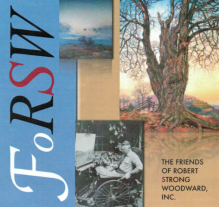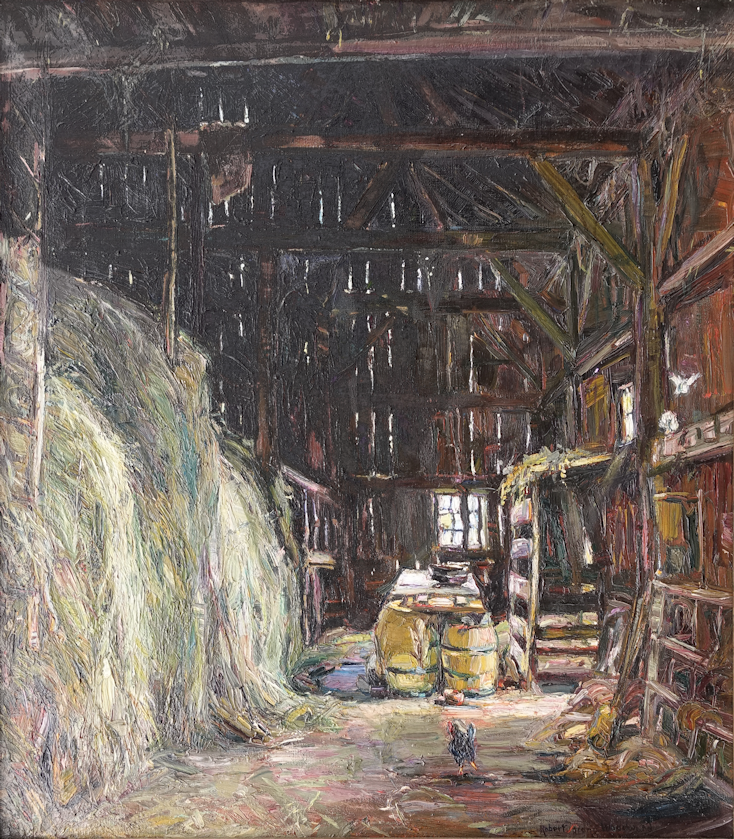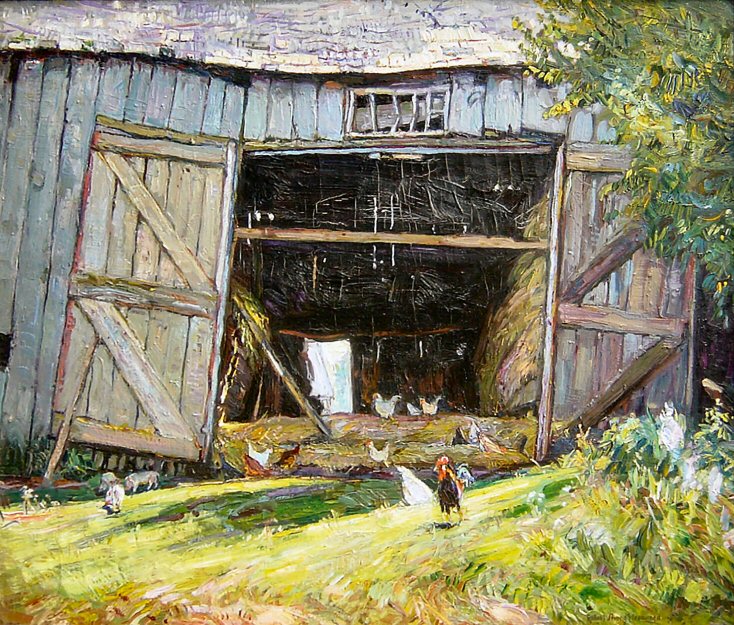Quick Reference
c. 1926
Unknown
Oil on Canvas
Landscape
Barns
Unknown
Unknown
Unknown
NA
Related Links
- See also the...
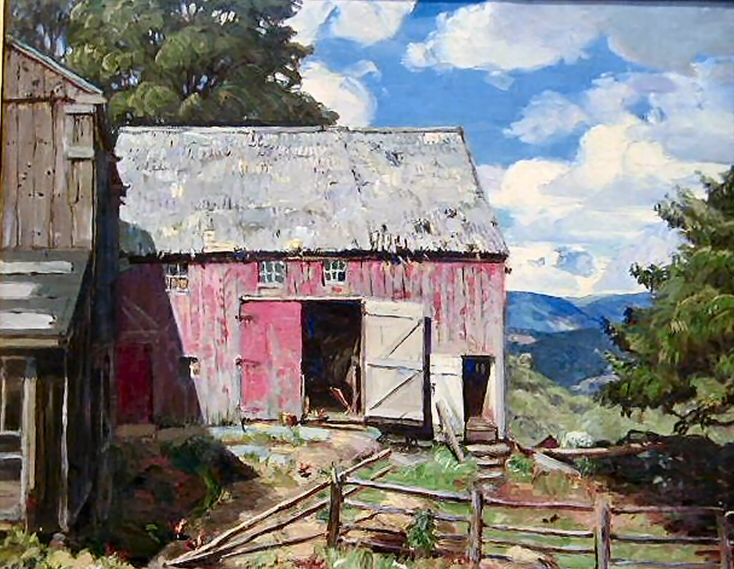 Barns Gallery to view related pieces.
Barns Gallery to view related pieces.
- See our page devoted to ...
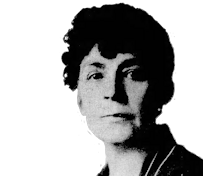 RSW patron Mrs. Everett
RSW patron Mrs. Everett
- See also the...
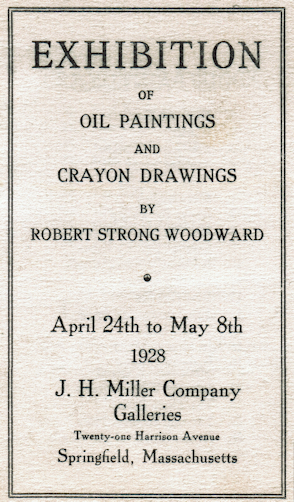 Exhibition List for a complete list of events
Exhibition List for a complete list of events
- See also the...
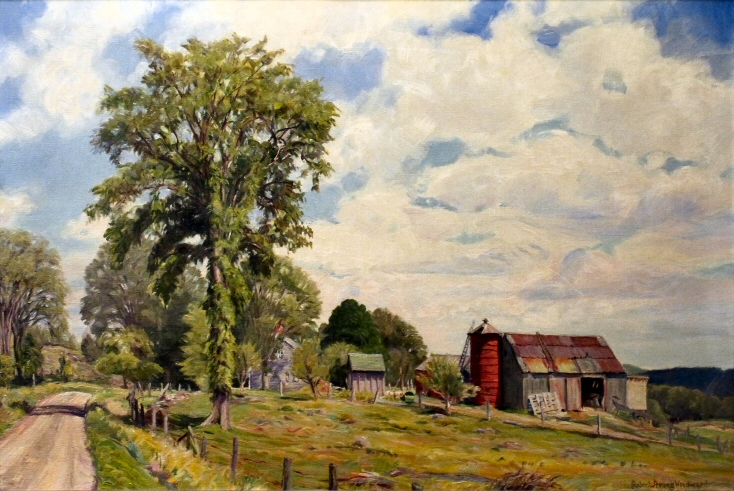 Farms Gallery to view related pieces.
Farms Gallery to view related pieces.
- See also the...
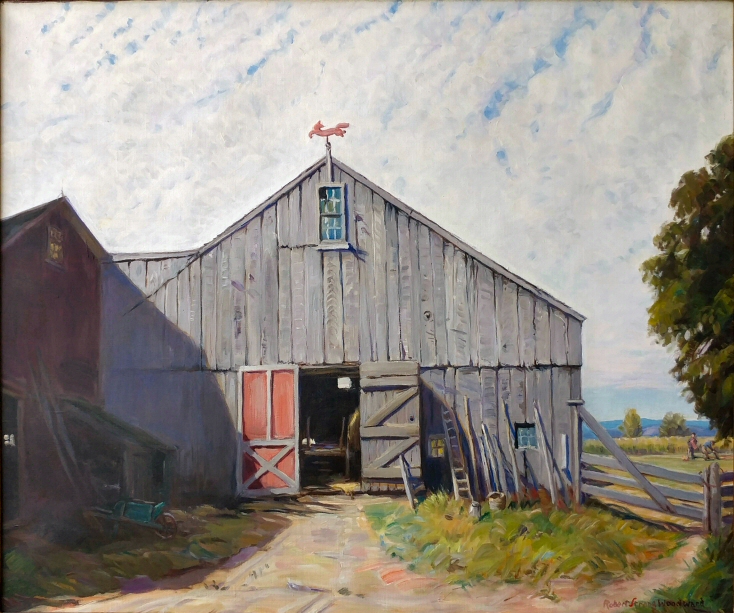 Fences, Gates & Doors Gallery to view related pieces.
Fences, Gates & Doors Gallery to view related pieces.
- See also the...
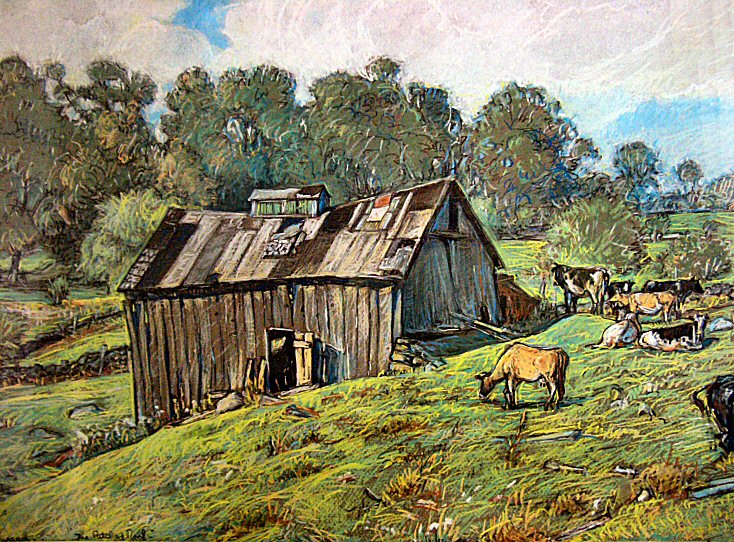 People & Livestock Gallery for related pieces.
People & Livestock Gallery for related pieces.
Featured Artwork: Massachusetts Barn
RSW's Diary Comments
⮟ There is no diary entry for this painting which is not unusual for paintings sent to Mrs. Everett.
Editor's Note:
We do not know where Dr. Mark got the
information for this painting. There is a newspaper clipping of the event (below) in the artist's personal scrapbooks,
however, there is no mention of a single work of art exhibited except for Robert Henri's Medicine Blanket. So
we do not know where or how Dr. Mark got the painting's name.
Nonetheless, the name does indicate what the
subject of the work, only there are three possibilities for the scene. We have multiple examples of Woodward making a
painting that he either liked very much or had significant success and making a version of that painting for his
California patron Mrs. Josephine Everett of Cleveland, OH, and Pasadena, CA. It is most likely that was the case as well
in this instance.
Here we selected the three most likely subjects. The barn in interior, to the right, is a
subject he made seven known times. He made three of them before 1926, making it the most likely subject...
... Of the two exterior barn paintings, we feel that the Flying Fox would be the most likely to be sent for an exhibition and most fitting page's painting name. That does not mean the The Friendly Doorway is second rate to either of the other paintings. The artist loved this painting very much and kept it for himself in his personal collection. It is surely something he would share with Mrs. Everett given how close the two were.
Additional Notes

 The Los Angeles Evening Express
The Los Angeles Evening Express
Monday, August 2, 1926
We had to do some sleuthing to put together the newspaper clipping (to the right) and the year of the exhibition to
verify Dr. Mark's information. Because it was early in his career, it is found in Woodward's oldest scrapbook which is
in very poor condition. We have since placed its pages in protective coverings to preserve then as best we can. This
article is in especially bad shape because it is place inside, close to the binding. So every time someone pages through
the scrapbook the inside clippings get the worst of it. You will see what we mean when you enlarge the image much of the
right side is tattered and missing. It does not help that the newspaper's heading is incomplete and frayed at the edges
with it missing the last digit of the date's year.
We confirmed that Monday, August 2, occurred twice in the
1920s decade. First in 1920, and later in 1926. Next we had to sort out the newspaper's name, which we learned, at that
time, was the Los Angeles Evening Express, also known as the Herald Express, and Herald-Tribune. The Library of Congress
records show that the Los Angeles Evening Express published between 1919 and 1928 fitting our range. We were also able
to confirm the critic who wrote the article, Alma May Cook, was in fact an art critic for sixty years and the daughter
of the newspaper's founder.
All of our information confirms that this had to have been the exhibition Woodward's
Massachusetts Barn hung "in loan" to the Los Angeles County Art Museum's former residence in Exposition Park. We are
still working on learning more and we will be reaching out to the museum in hope for more information. Still, we have
enough for now. What we do not know, however, is if this is similar to or organized by the same group that put on the
1937 "Loan Exhibition" run by the Los Angeles Art Association. Ms. Cook does not say in this particular article.
What she does instead is list all of the 67 artist representing the 90 paintings hanging at the event and it is a list
of who's who in art... more than half of them considered all time greats. What's more is the names were listed
alphabetically, as to perhaps not offend anyone or show any bias.
⮞ George Bellows
⮞ Ralph Blakelock
⮞ Max Bohm
⮞ Ben Foster
⮞ Robert Henri
⮞ Winslow Homer
⮞ Robert B. Howard
⮞ George Inness
⮞ George Luks
⮞ Willard Metcalf
⮞ Thomas Moran
⮞ Chauncey M. Ryder
⮞ John Singer Sargent
⮞ Dwight W. Tryon
⮞ James McNell Whistler
and... Robert Strong Woodward (haha)

 1937 Catalog for the Los Angeles Art Assoc.,
1937 Catalog for the Los Angeles Art Assoc.,
"Loan Exhibition," Oct. 15 thru Dec. 15, 1937
We added Woodward's name to the end of the list above to show the contrast. Although it is fair to point out that
New York Times Magazine compared Woodward's early work shown at the National Academy of Design to that of Ralph Blakelock
and he himself used Ben Foster as an example comparison to Ben Foster in a letter to gallery owner William Macbeth.
Chauncey Ryder was a good friend who visited him often, and Woodward once claimed his apples were every bit as good,
if not better than Sargent's. He admired Whistler a great deal, and held one of his greatest exhibits in Tryon's namesake
museum at Smith College. While we do not feel Woodward's legacy does not live up to those greats, he does have a place
in history worthy of consideration and Mrs. Everett did all she could to see to it that it is.
Mrs. Everett
would also loan Woodward's work to the Los Angeles County Museum in 1928, and in 1937 to the Los Angeles Art Association
where he would hang again with many of the same names above.

.png)
